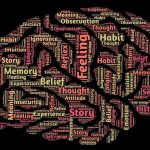I was recently interviewed on Radio National Life Matters about the physical and mental benefits of having something to look forward to. You can listen to our conversation here. Our discussion was based on the Health-e-Byte I wrote in February this year, which you can read here.
This was something that also struck me when I was in Poland visiting the horrific concentration camps at Auschwitz and Birkenau. The cruelty of those places is unthinkable but the message I took away was that looking forward to a positive future can literally make the difference between life and death. Loss of hope led to loss of life. The prisoners who survived were the ones who clung to the belief that they would one day be free and reunite with loved ones. If that hope was quashed for whatever reason, their bodies crumbled.
As Jewish psychiatrist and holocaust survivor, Viktor Frankl, wrote in his book Man’s Search for Meaning, ‘Everything can be taken away from a person except one thing: their ability to choose their attitude in any given situation. The type of person a prisoner became was not the result of camp influences alone, but rather, the result of an inner decision. Those who survived were able to do so because they chose to view their suffering as an opportunity to achieve an inner victory.’
The stories of holocaust survivors are testament to the resilience of the human spirit and the power of our spirit over our body.
If you’re facing a particularly difficult or stressful situation, how might you be able to view it as an opportunity to deepen your relationships, gain a greater appreciation for what you have, or learn to trust your intuition? It isn’t easy, but it’s a powerful way to increase our ability to cope with whatever we’re facing.
People often tell me they don’t want to get their hopes up about something because they’re afraid of it not turning out the way they planned, which will lead to disappointment. However, things are actually more likely to turn out well if we anticipate that they will because anticipation wires our brain to subconsciously look for what we need to do to make the thing happen. We do it without even realising. We instinctively choose one path over another, or we mention our plans to someone and they give us a great piece of advice.
The other interesting finding is that if we’re not looking forward to something — like major surgery or a difficult work situation — more often than not, when asked to reflect back after it has happened, people report that things weren’t as bad as they anticipated. That’s all the more reason not to worry about future events because the vast majority of our fears are never realised. This doesn’t mean not to prepare for possible mishaps — don’t cancel your car and house insurance — but make the effort to seek out joy wherever you can find it. Joy isn’t just a feeling; joy strengthens our immune system, enhances our creativity and increases our ability to solve even the toughest problems.
Please forward this Health-e-Byte to anyone who needs something to look forward to.
Photo credit: I am sharing my photo of Warsaw because in August 1944, more than 85% of the city was destroyed by Nazi troops. After the war, it was meticulously reconstructed with all its palaces, churches, townhouses and market place to reflect the way it had been from the 13th to 19th centuries. The five-year restoration campaign is symbolic of our capacity to rebuild not only a city, but also ourselves.



many thanks so true.thx fay